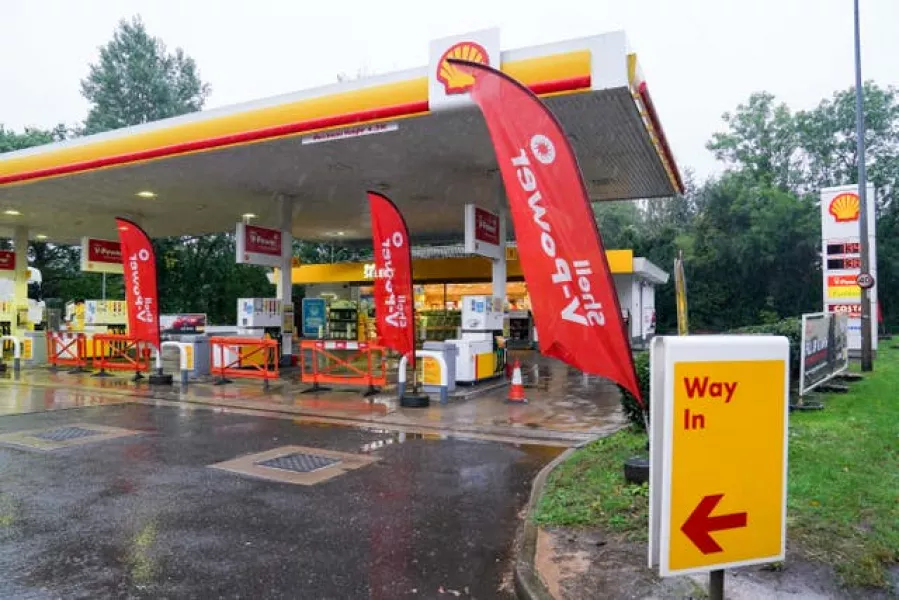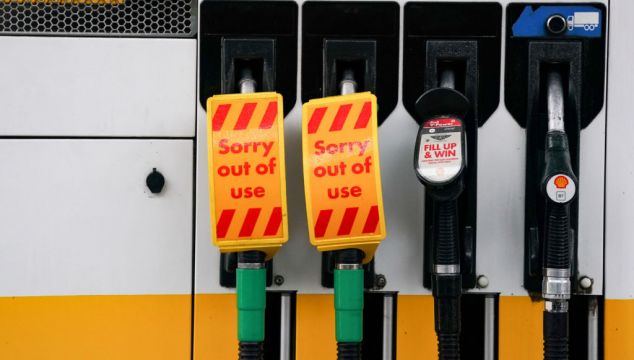The government has “no plans at the moment” to use the British army to drive petrol tankers amid continuing shortages at filling stations, the UK environment secretary George Eustice has said.
Mr Eustice said there was not a shortage of fuel and called on motorists to stop “panic buying” petrol and return to their normal pattern of purchasing.
His comments came amid reports the British prime minister Boris Johnson was considering sending in troops to deliver fuel to petrol stations following days of long queues at the pumps.
In a pooled clip for broadcasters, Mr Eustice said: “We are bringing ministry of defence (MoD) trainers in to accelerate some of the HGV training to clear a backlog of people who want to carry out those tests, and there’s definitely a role there for the MoD.
“In terms of other things we’ve no plans at the moment to bring in the army to actually do the driving, but we always have a Civil Contingencies section within the army on standby — but we’re not jumping to that necessarily at the moment.”

Industry leaders have warned drafting in the army will not on its own end the shortages on the forecourts.
The UK Petrol Retailers Association (PRA) chairman Brian Madderson confirmed some training had been taking place “in the background” for military personnel.
But he warned it was not an “absolute panacea” and that there was no “single lever” the government and the industry could pull to resolve the crisis.
With long queues at filling stations continuing over the weekend, UK business secretary Kwasi Kwarteng announced on Sunday he was temporarily suspending competition laws to allow the industry to share information so it can target areas where fuel supply is running low.
The move came after Mr Johnson said the government was creating 5,000 three-month visas for foreign lorry drivers in an attempt to ease the pressure on hauliers, which has been blamed over the problems.

A statement by Shell, ExxonMobile and other industry bodies again insisted there was no “national shortage of fuel” and that the pressures on supply were the result of “temporary spikes in customer demand”.
Mr Eustice blamed motorists for filling up when they did not need to, adding: “There isn’t a shortage. There have been some shortages of HGV drivers getting petrol to forecourts but actually that is quite limited.”
But with no immediate sign of the problem easing, Mr Johnson was reported to be holding a series of meetings to consider whether to activate the military for Operation Escalin.

However, Mr Madderson said it was not just a question of moving supplies to the filling stations as drivers had to load up their tanks at the gantry at the terminal, which is a skilled job.
“There has been training going on in the background for military personnel,” he told the BBC Radio 4’s Today programme.
“But that’s perhaps just confined to moving the tanker by articulated truck from point A to point B.
“One of the difficulties is loading, and the tanker drivers currently load their own tanks at the gantry at the terminals, and then most are providing the delivery to the forecourt.
“This is a skilled job, and we will be working with government and industry to see how we can best move it forward.”







